In a story that has ignited online debate about the future of NFL ownership culture, the Chicago Bears have been described in a viral report as rejecting a $500 million funding proposal from tech billionaire Elon Musk. The alleged offer, said to include financing for cutting‑edge infrastructure, analytics platforms, and a futuristic fan experience, was purportedly declined in firm, values‑driven language emphasizing tradition and community over corporate influence. While the narrative has spread rapidly across blogs and social media, the specifics—including a strikingly worded team “statement” and a quote attributed to “Chicago Mayor John Doe”—remain unverified and resemble either an embellished leak or a piece of stylized commentary. Regardless of its factual status, the episode has tapped into broader tensions about how much influence billionaire technologists should wield in legacy sports franchises.
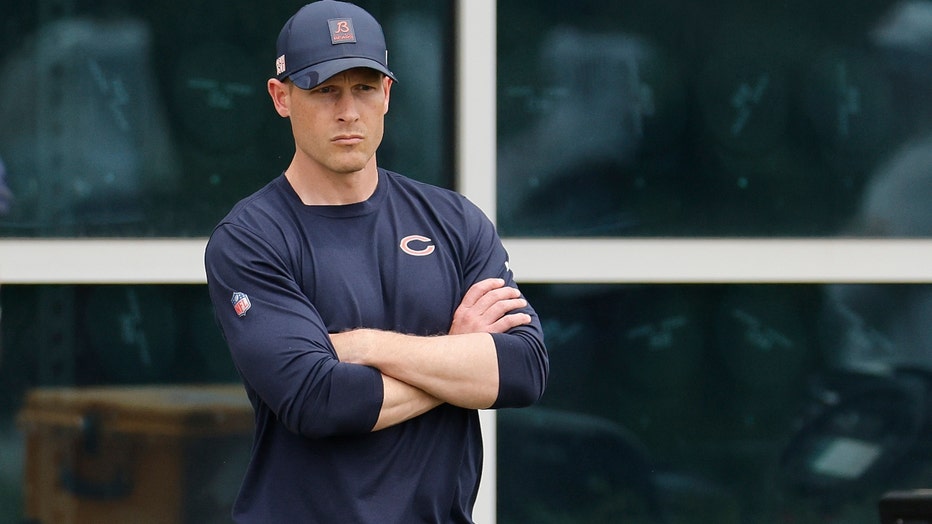
According to the circulating account, Musk approached the Bears with a $500 million package intended to modernize both football operations and the spectator footprint: AI-driven performance tracking, expanded real‑time data integration, immersive in‑stadium augmented reality, and early conceptual work toward a next‑generation multipurpose venue. Framed as a transformational leap, the proposal ostensibly promised to accelerate roster optimization and redefine fan engagement for a new era of digitally embedded consumption.
The most arresting element of the story is the language allegedly used in the Bears’ rejection: “We will NOT NEVER be bought by billionaires like you… The Chicago Bears are not for sale. We stand with the people of Chicago against greed, racism, and corporate exploitation.” The emphatic, double‑negative phrasing and activist tone differ sharply from the polished, carefully lawyered style typical of official NFL franchise communications—one reason skeptics have questioned its authenticity. No corresponding filing, press release, or on‑record confirmation has surfaced through mainstream sports business outlets or accredited league reporters.
Yet the narrative has resonated precisely because it compresses a set of anxieties that already exist in professional sports. As valuations of NFL franchises soar—regularly eclipsing $5 billion—outside capital and innovative financing models exert constant gravitational pull. The hypothetical Musk package functions as a symbol: a collision between a heritage-rich, family-owned team and a relentlessly disruptive brand of technocapitalism.
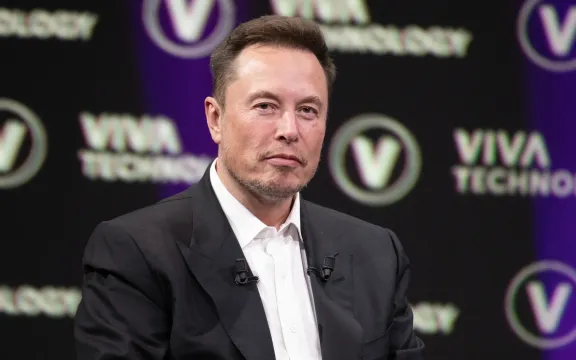
In the viral framing, Bears chairman George McCaskey purportedly underscores a refusal to chase a “flashy future built on the whims of a billionaire,” reaffirming a cultural identity rooted in toughness, continuity, and localized loyalty. Even absent verification, the line finds traction because the Bears occupy a storied slot in league mythology: founding-era pedigree, Hall of Fame lineage, and a deeply intergenerational Chicago fan base. The tension between preserving that aura and pursuing maximum modernization is real, even if this specific catalyst is questionable.
The reported (or imagined) fan reaction online—praise for defending “tradition,” resistance to “corporate takeover”—maps onto a familiar pattern. Supporters of legacy franchises often valorize authenticity against perceived commodification. Whether the Musk angle is factual or narrative device, it crystalizes a dichotomy: innovation as enhancement versus innovation as dilution. In many cases across sports, modernization has delivered genuine gains (sports science precision, improved safety protocols, richer storytelling via data visualization). Still, supporters worry about an experiential tipping point where local texture gives way to algorithmic uniformity.
A supposed quote from “Chicago Mayor John Doe” only deepens the impression that the story blends rhetorical flourish with speculative commentary. The placeholder quality of the name suggests satire or draft text rather than confirmed civic endorsement. Nevertheless, invoking civic leadership dramatizes the idea that a franchise’s cultural footprint extends beyond private business operations into semi-public symbolism.
From a governance standpoint, any real attempt at deep capital partnership with an NFL franchise would confront layers of structural constraint: league ownership rules, debt limits, scrutiny from the NFL’s finance committee, and potential resistance from existing equity stakeholders wary of ceding brand control. Even a cash-rich visionary cannot simply bolt a personal innovation stack onto a team without navigating collective bargaining implications, data rights questions, and union sensitivities about biometric or AI-driven evaluative tools.
Why the story gained traction, verified or not:
-
Archetypal conflict: Tradition versus disruption is a durable cultural storyline.
Personality gravity: Elon Musk’s public persona invites amplification; attaching his name accelerates virality.
Economic backdrop: Escalating stadium and media economics make large capital infusions both plausible and polarizing.
Ownership discourse: Fans increasingly parse ethical dimensions—community stewardship versus extractive commercialization.
Emotional shorthand: A defiant “not for sale” posture delivers crisp identity affirmation in an era of fluid franchise branding.
If we analyze the scenario in counterfactual terms—imagining the offer were genuine—the Bears would weigh opportunity costs: Could a $500 million infusion compress competitive timelines? Would a tech-forward stadium materially expand revenue streams (dynamic ticketing layers, spatial commerce overlays, custom AR sponsorship inventory)? Alternatively, would entanglement with a high-profile individual introduce reputational volatility and strategic drift from football-first focus?
The narrative also touches on a subtler friction: data sovereignty. AI-driven training ecosystems require ingestion of player movement metrics, biometric proxies, and contextual performance data. NFL Players Association guardrails, privacy frameworks, and emergent ethical norms around predictive health modeling would shape any real deployment. Fans may celebrate innovation until surveillance overtones emerge.
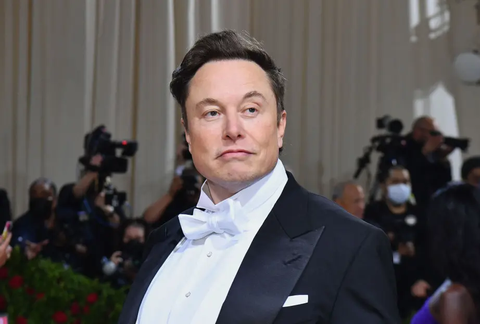
For other franchises, the allegory functions as a cultural stress test: Are there red lines—governance thresholds, identity anchors—that money cannot cross? Or does every tradition eventually yield to capital if structured attractively enough? The unresolved status of the Bears-Musk tale allows supporters to project aspirational answers without confronting messy logistical details.
Looking forward, the constructive path for discourse involves:
Distinguishing verified reporting from symbolic storytelling.
Encouraging transparency around modernization initiatives to retain trust.
Crafting innovation frameworks that embed community consultation rather than supplant it.
Developing ethical standards for AI and analytics adoption that foreground player agency.
Whether an accurate account, an embellished rumor, or an intentional piece of commentary, the story about the Chicago Bears rebuffing a $500 million Elon Musk overture resonates because it dramatizes an authentic question: How do legacy sports institutions integrate technological and financial acceleration without eroding the communal and historical bonds that made them valuable in the first place? Until substantiated evidence emerges, the alleged exchange should be treated cautiously. Yet its viral lifespan underscores a public appetite for reaffirmations that some pillars—heritage, locality, collective identity—remain resistant to pure capital logic. In that sense, the narrative, factual or not, has already performed cultural work: it re-centered an ongoing negotiation over who ultimately owns the meaning of a team—the investors, or the people who fill the cold seats on winter Sundays. If you’d like a purely fictional or alternatively a rigorously sourced version next, let me know which direction to take.
News
 “‘THIS IS WHY SHE’S A LEGEND!’ — KELLY CLARKSON JUST TORCHED KAROLINE LEAVITT IN A TAKEDOWN SO FIERCE IT SET SOCIAL MEDIA ON FIRE, WITH FANS CALLING IT ONE OF THE MOST ICONIC MOMENTS OF HER CAREER.”
“‘THIS IS WHY SHE’S A LEGEND!’ — KELLY CLARKSON JUST TORCHED KAROLINE LEAVITT IN A TAKEDOWN SO FIERCE IT SET SOCIAL MEDIA ON FIRE, WITH FANS CALLING IT ONE OF THE MOST ICONIC MOMENTS OF HER CAREER.”
“THIS IS WHY SHE’S A LEGEND!” — Kelly Clarkson’s Fierce Takedown of Karoline Leavitt Sets Social Media on Fire In…
“LIVE-TV ERUPTION — WHOOPI GOLDBERG SCREAMED ‘CUT IT!’ BUT IT WAS TOO LATE: TYRUS TURNED THE VIEW INTO GROUND ZERO FOR CHAOS, TORCHING JOY BEHAR & STORMING OFF WITH A PARTING SHOT THAT LEFT THE STUDIO IN RUINS.”
Tyrus Blows Up The View: The Live-TV Meltdown That Redefined Daytime Drama Introduction: When Daytime TV Turned Into a Battlefield…
“THE BROADCAST BLACKOUT — MADDOW, COLBERT & KIMMEL JUST LAUNCHED A ‘FORBIDDEN’ INDEPENDENT NEWSROOM TO EXPOSE WHAT NETWORKS BURIED, SHAKING THE MEDIA LANDSCAPE WITH A BOLD PROMISE OF RAW, UNCENSORED JOURNALISM.”
The Broadcast Blackout: Maddow, Colbert & Kimmel’s ‘Forbidden’ Newsroom Exposes What Networks Buried Rachel Maddow, Stephen Colbert, and Jimmy Kimmel…

 “STEPHEN COLBERT JUST MADE THE MOST EXPLOSIVE COMEBACK OF HIS CAREER — AFTER CBS LET HIM GO, HE’S BACK WITH UNFILTERED, JOINING FORCES WITH JASMINE CROCKETT IN A SHOW THAT DEFIES EVERY RULE OF LATE-NIGHT.”
“STEPHEN COLBERT JUST MADE THE MOST EXPLOSIVE COMEBACK OF HIS CAREER — AFTER CBS LET HIM GO, HE’S BACK WITH UNFILTERED, JOINING FORCES WITH JASMINE CROCKETT IN A SHOW THAT DEFIES EVERY RULE OF LATE-NIGHT.”
Stephen Colbert’s Bold Return: Partnering With Jasmine Crockett to Redefine Late-Night Television New York, NY — For a decade, Stephen…
 “STEPHEN COLBERT JUST BROKE HIS SILENCE — CELEBRATING JIMMY KIMMEL’S SHOCK RETURN AFTER SUSPENSION, CALLING IT A VICTORY FOR LATE-NIGHT FREEDOM AND A DEFIANT MESSAGE TO NETWORK EXECUTIVES WHO TRIED TO SILENCE HIM.”
“STEPHEN COLBERT JUST BROKE HIS SILENCE — CELEBRATING JIMMY KIMMEL’S SHOCK RETURN AFTER SUSPENSION, CALLING IT A VICTORY FOR LATE-NIGHT FREEDOM AND A DEFIANT MESSAGE TO NETWORK EXECUTIVES WHO TRIED TO SILENCE HIM.”
Stephen Colbert Praises Jimmy Kimmel’s Emotional Return: “So Proud of Him” — A Late-Night Lesson in Free Speech and Unity…
 “UNBELIEVABLE! THE LATE-NIGHT EARTHQUAKE NO ONE SAW COMING — STEPHEN COLBERT RETURNS FROM CBS EXILE WITH A NEW SHOW AND A NEW PARTNER, JASMINE CROCKETT — A COMEDY LEGEND AND A POLITICAL FIREBRAND FUSED INTO ONE EXPLOSIVE ALLIANCE READY TO REWRITE TELEVISION HISTORY”
“UNBELIEVABLE! THE LATE-NIGHT EARTHQUAKE NO ONE SAW COMING — STEPHEN COLBERT RETURNS FROM CBS EXILE WITH A NEW SHOW AND A NEW PARTNER, JASMINE CROCKETT — A COMEDY LEGEND AND A POLITICAL FIREBRAND FUSED INTO ONE EXPLOSIVE ALLIANCE READY TO REWRITE TELEVISION HISTORY”
“UNBELIEVABLE!” — Stephen Colbert Joins Forces with Jasmine Crockett After CBS Axes The Late Show In one of the most…
End of content
No more pages to load

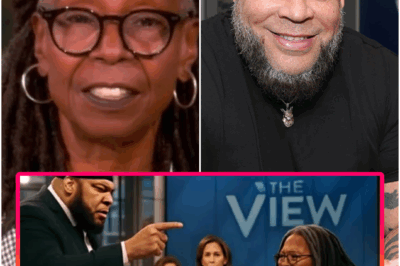
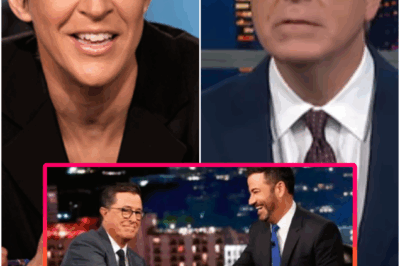
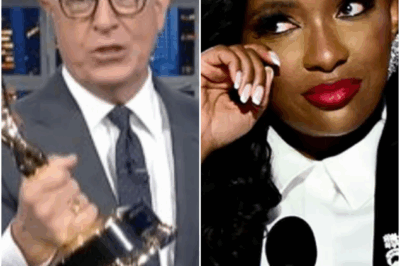
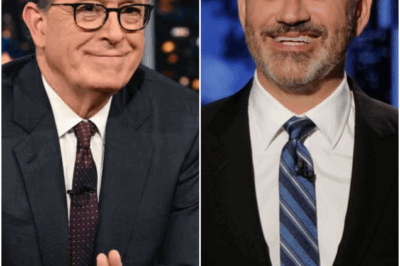

Leave a Reply